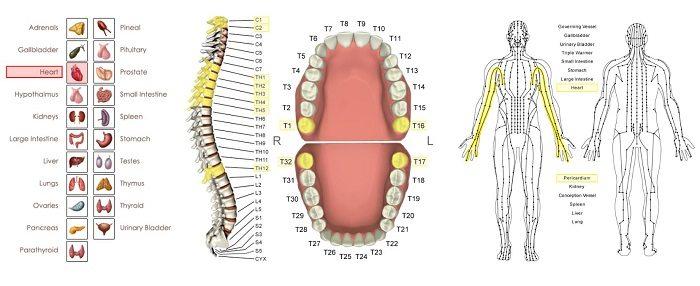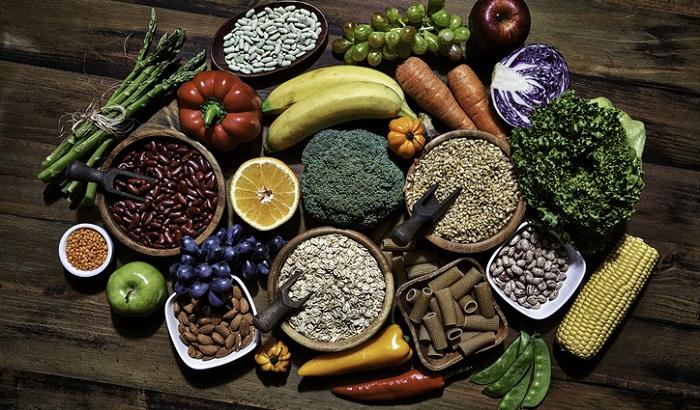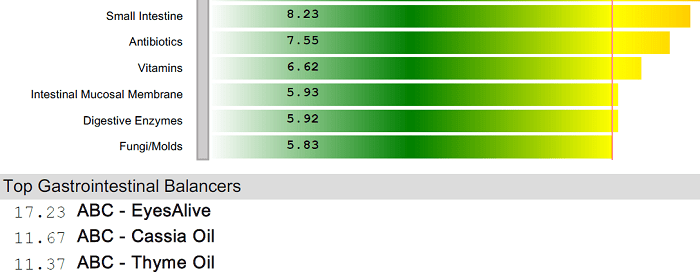The small intestine, also called the small bowel, is a vital part of the digestive tract.
It is where most of our digestion takes place, and it helps us to break down food and absorb nutrients.
In order to support good digestive health, and overall health as well, it’s important to take good care of your small intestine. So, let’s learn all about how your small intestine works and how to keep it healthy!
Small intestine structure
The small intestine is an organ of the digestive tract that runs between the stomach and the large intestine. It is made up of long tubes, about one inch in diameter, that lay in coils in the lower abdomen. The small intestine is located under the stomach and is surrounded by the large intestine.1 2
The small intestine is comprised of three different sections:
- The duodenum
- The jejunum
- The ileum
Although it is referred to as the “small” intestine, it is actually the longest segment of the digestive tract—about 22 feet in length. It has many folds, allowing it to have a very large surface area. If you unfolded it and stretched out the surface, it would cover about the size of a tennis court.
The small intestine is made up of a complex network of muscles, mucosal layers, glands, nerves, and blood vessels that allow this organ to perform all of its duties and coordinate with the rest of the body.
The small intestine is connected to several other organs, including the liver, gallbladder, and pancreas, so that they can all work together to digest our food.
Small intestine function
The small intestine plays a vital role in the digestive process. In fact, it is where most digestion takes place.
The small intestine receives partially digested food from the stomach. Once in the small intestine, food is broken down even more with the help of digestive juices that are secreted into the small intestine. Friendly bacteria living in the small intestine also help out with this process.1 2 3
When the food is broken down, the small intestine helps us to extract water and nutrients from it. The nutrients are then absorbed into our blood stream so they can go to use throughout our body. About 95% of nutrient absorption occurs in the small intestine.1
The muscles of the small intestine also work to move food along the gastrointestinal tract. Anything left over from the small intestine is passed on to the large intestine where it is further processed before being eliminated from the body.
The small intestine is linked up to our nervous system, and it even has its own branch of neural pathways. It relies on a complex network of neurotransmitters and hormones to carry out all of its duties and to communicate with other parts of the body as well.4
Another function of the small intestine is to help protect our body from pathogens. It plays a role in immunity, serving as a barrier to keep out harmful bacteria that may have made their way into the digestive tract.
Energetic connections

According to traditional Chinese medicine (TCM), the small intestine has an energetic connection with several vertebrae and teeth. This means that an issue with the small intestine could manifest as pain or discomfort in any of these areas, and vice-versa:
- 2nd cervical vertebra (C2)
- 1st, 7th, 10th, 11th, & 12th thoracic vertebrae (T1, T7, T10, T11, T12)
- The 4 wisdom teeth (T1, T16, T17, T32)
Additionally, the small intestine has an energetic connection with the small intestine meridian and its sister meridian, the heart. These meridians are associated with the emotion of joy, which means that an imbalance of joy in your life can lead to problems in these areas as well.
Common small intestine issues
When the structure and function of the small intestine get disrupted, several different problems can occur.
Some of the common problems related to the small intestine include the following:
- Irritable Bowel Syndrome (IBS) is a common problem that affects the intestines. It involves irregular muscle contractions that cause digestive symptoms like diarrhea, constipation, pain, bloating, gas, and more.
- Small intestinal bacterial overgrowth (SIBO) is an issue where there is an abnormal amount of bacteria growing in the small intestine. It can lead to a variety of symptoms like diarrhea, pain, bloating, gas, and more.
- Small bowel obstruction occurs when there is a blockage in the small intestine, stopping food from moving through the digestive tract. An obstruction can be an emergency and requires medical attention.
- Enteritis is inflammation of the small intestine, most often caused by an infection.
- If a pathogen makes its way into the small intestine, it may become infected. This can cause a variety of symptoms and may require medical care to resolve.
- An ulcer is a type of sore that can develop in the lining of the digestive tract, including in the small intestine. Ulcers can be caused by infections, as well as NSAID use, alcohol consumption, smoking, stress, and more.1 2 5 6 7
Symptoms of small intestine problems
There are a wide variety of digestive-related symptoms that can be a sign of something out of balance in the small intestine. If you have any of the symptoms listed below, consult with a healthcare provider to get diagnosed and receive proper care:
- Diarrhea
- Constipation
- Indigestion
- Cramps
- Pain
- Nausea
- Vomiting
- Bloating
- Dehydration
- Fatigue
- Malaise
- Appetite changes
- Nutritional deficiencies1
How diet impacts small intestine health

As it plays a key role in digestion and absorption, the small intestine is influenced by what we eat and how we eat.
If you want to keep your small intestine functioning optimally, nourishing it with healthy foods and avoiding unhealthy eating habits can go a long way.
Here are some of the top tips to consider:
- Eat plenty of fiber. Fiber helps keep your bowel movements regular, moving food through the digestive tract smoothly and efficiently. A diet high in fiber also feeds the friendly bacteria living in your intestines, helping to support a healthy microbial balance there.
- Consume lots of fruits and veggies. Fruits and vegetables are great for overall health. They contain lots of fiber, and they also help to maintain an appropriate acidity level in the digestive tract. The small intestine can suffer if acidity levels get too high, so eating alkaline foods in the form of fruits and vegetables can protect your gut lining from damage.
- Limit processed foods. Processed foods can be highly acidic, and they can be harmful to your small intestine health (and overall health, as well). Try to stay away from highly processed options like fast foods, pre-packed meals, and foods with long lists of ingredients you don’t recognize.
- Keep an eye out for food intolerances. Each of us responds to certain foods differently, and many of us are sensitive to particular types of food. This means that when we consume them, our bodies don’t respond well. If you are experiencing digestive symptoms, you may want to experiment with removing certain foods from your diet. Your intestinal tract may be reacting negatively, and you may do it a huge favor if you alter your diet accordingly.1
How lifestyle impacts small intestine health
Eating a nourishing diet is one way to support small intestine health. But that’s not the only way to maintain a healthy small intestine.
Here are some lifestyle choices you can make to take care of your digestive health, and your whole body while you are at it, with healthy daily habits:
- Stay hydrated. Drinking plenty of water is an important step to take to support your small intestine. As with fiber, water helps to keep your digestion regular and smooth, so that you can avoid common issues like constipation.
- Moderate alcohol intake. Alcohol can harm the small intestine in several ways, including promoting inflammation, causing ulcers, disrupting bacterial balance, and more. Keeping alcohol intake in moderation is key to maintaining a healthy small intestine.
- Stop smoking. Like alcohol, smoking can damage the intestinal tract. Get support in quitting, so that you can help your body to heal and regain optimal health.
- Get active. Physical activity is important for regular digestion, immunity, and so much more. That makes exercise a vital lifestyle habit for supporting digestive health. It has even been found to help promote healthy bacterial balance in the intestines! 8 9
Supplements and herbs for small intestine health
There are various supplements and herbal medicines that are commonly used to support intestinal health. Here are a few of the options you may consider:
- Probiotics are the healthy kind of bacteria that are good for your gut and that help aid in digestion. Probiotic supplements can help to boost the body’s natural microbial population and prevent imbalances. They are sometimes used for specific intestinal disorders and improve general digestive health. Work with a practitioner who can help you decide what kind and what dose might be right for you.10
- The small intestine relies on many different enzymes to break down food. Sometimes, people can benefit from adding in digestive enzymes through supplementation to support the digestive process. A doctor can help you determine what might be helpful for you.11
- Licorice root is a medicinal plant that has a long history of use for digestive complaints. It provides a protective covering over the intestinal lining and can help soothe irritation and alleviate discomfort.12
- Slippery elm is believed to help heal mucous membranes in the gut, and some research shows it may help with inflammatory bowel issues and irritable bowel syndrome.12
- Psyllium husk is a natural source of fiber that you can choose to supplement with if you’re having trouble getting enough fiber into your diet.
- Many people find peppermint brings relief for symptoms like constipation and diarrhea. This herb is thought to have a relaxing effect on the muscles in the intestines, and it also has anti-inflammatory and antimicrobial properties. It has been shown to be helpful in disorders of the intestine such as irritable bowel syndrome.13
- Ginger is commonly used as a natural remedy for digestive symptoms like upset stomach, nausea, bloating, and gas.14
Always consult with your healthcare practitioner before beginning any supplements or herbs.
Small Intestine stressor Virtual Item

A digital signature representing the small intestine is automatically scanned in the Balance Biosurvey. The body’s response to this item will appear in the Biomarker Progress Chart, which is found in the Advanced Report. If this item is out of range, it will also show up in the Gastrointestinal System section of the Wellness Report.
The Small Intestine Virtual Item can also be scanned in various Select and Elite biosurveys as well. With these systems, you can also scan the following items related to the small intestine to discover even more about this organ.
- EAV Small Intestine Meridian
- Small Intestine Meridian Issues
- Small Intestine: Vulnerable
- Small Intestine Mu
- Small Intestine Shu
Small Intestine balancer Virtual Items
A ZYTO bioscan typically consists of scanning stressors such as the Small Intestine, and then scanning balancers. A balancer re-scan then shows which balancers brought the stressors back into range. The Biomarker Progress Chart will show you which balancer brought the Small Intestine Virtual Item back into range. Plus, you can see the top items to support the gastrointestinal system as a whole in the Wellness Report.
As our overall wellness consists of more than just physical health, EVOX perception reframing can address any emotional issues that may be at the root of a small intestine problem. An EVOX session can help break down the psychological barriers to peace and joy, which can help to nourish and support the small intestine.
 About Chelsea Clark
About Chelsea Clark
Chelsea Clark is a writer and certified health and wellness coach who is passionate about supporting others along their own health journeys. She enjoys helping people make positive, lasting changes so that they can live the happiest, healthiest life possible.
Sources:
1. “Small Intestine.” Cleveland Clinic. My.clevelandclinic.org.
2. Collins, J.T., A. Nguyen, & M. Badireddy. “Anatomy, Abdomen and Pelvis, Small Intestine.” In: StatPearls [Internet]. Treasure Island (FL): StatPearls Publishing; 2022.
3. “Your Digestive System & How it Works.” U.S Department of Health and Human Services. Niddk.nih.gov.
4. Mittal, R., L.H. Debs, et al. “Neurotransmitters: The Critical Modulators Regulating Gut-Brain Axis.” Journal of Cellular Physiology 232, no. 9 (2017): 2359–2372.
5. “Small Bowel Obstruction.” Cleveland Clinic. My.clevelandclinic.org.
7. Rao, S., & J. Bhagatwala. “Small Intestinal Bacterial Overgrowth: Clinical Features and Therapeutic Management.Clinical and Translational Gastroenterology, 10, no. 10 (2019): e00078.
8. Monda, V., I. Villano, et al. “Exercise Modifies the Gut Microbiota with Positive Health Effects.” Oxidative Medicine and Cellular Longevity 2017 (2017): 3831972.
9. Bishehsari, F., E. Magno, et al. “Alcohol and Gut-Derived Inflammation.” Alcohol Research : Current Reviews, 38, no. 2 (2017): 163–171.
10. Judkins, T.C., D.L. Archer, et al. “Probiotics, Nutrition, and the Small Intestine.” Current Gastroenterology Reports, 22, no. 1 (2020): 2.
11. “Digestive Enzymes and Digestive Enzyme Supplements.” The Johns Hopkins University. Hopkinsmedicine.org.
12. Berger, Mary. “What Is So Amazing About Using Herbs to Promote Gut Health?” Maryland University of Integrative Health.
13. Alammar, N., L. Wang, et al. “The impact of peppermint oil on the irritable bowel syndrome: a meta-analysis of the pooled clinical data.” BMC Complementary and Alternative Medicine 19, no. 1 (2019): 21.
14. Nikkhah Bodagh, M., I. Maleki, & A. Hekmatdoost. “Ginger in gastrointestinal disorders: A systematic review of clinical trials.” Food Science & Nutrition 7, no. 1 (2018): 96–108.